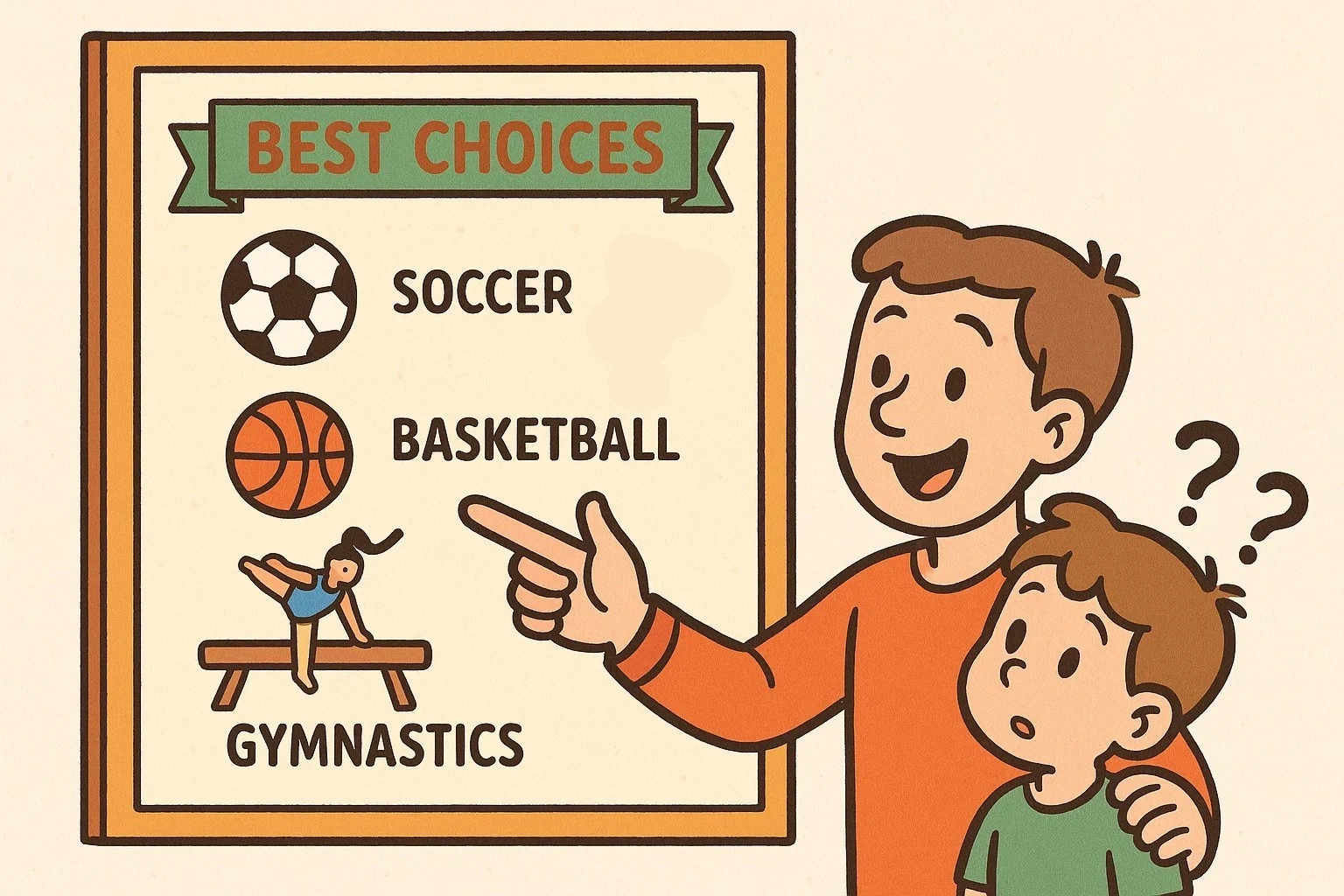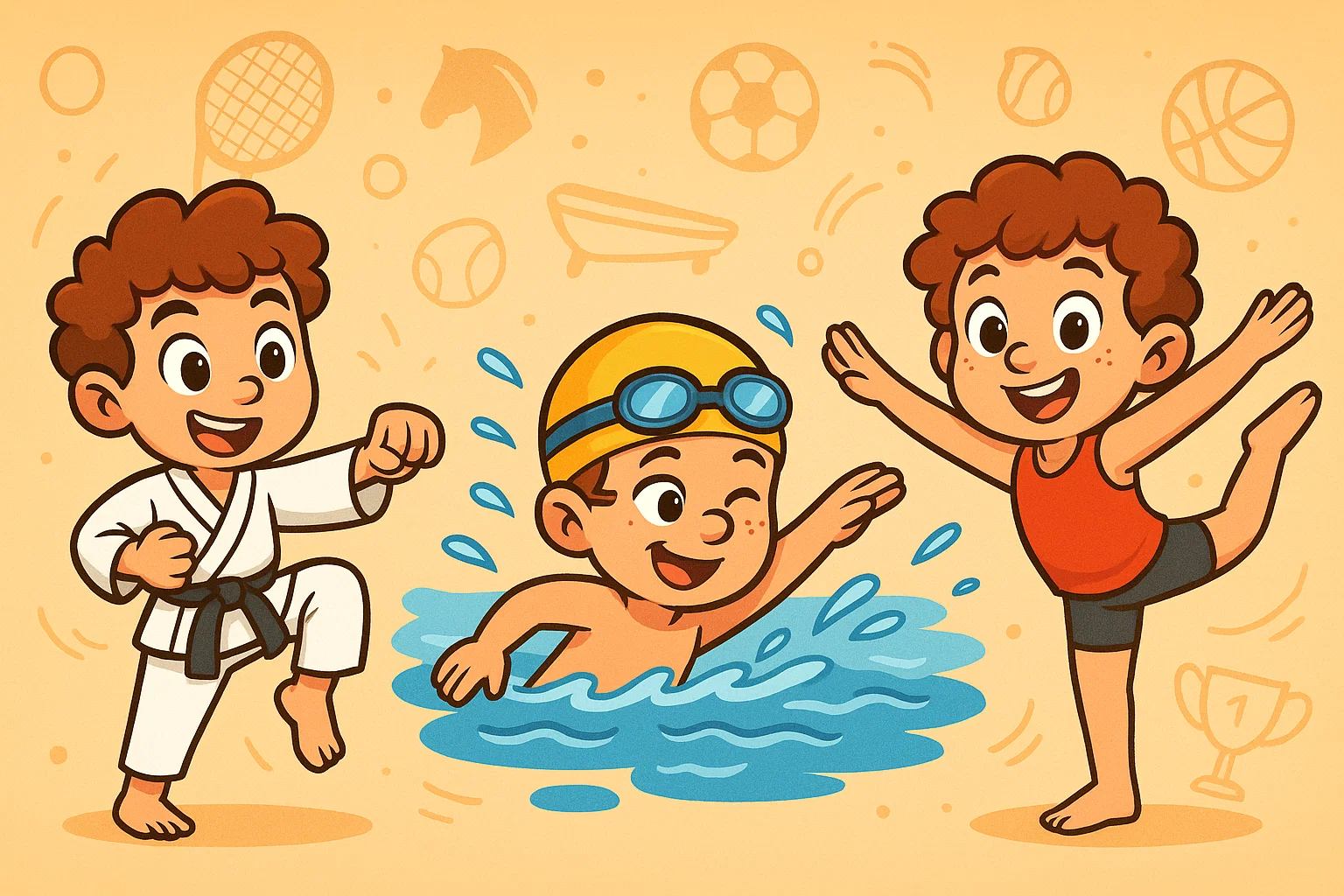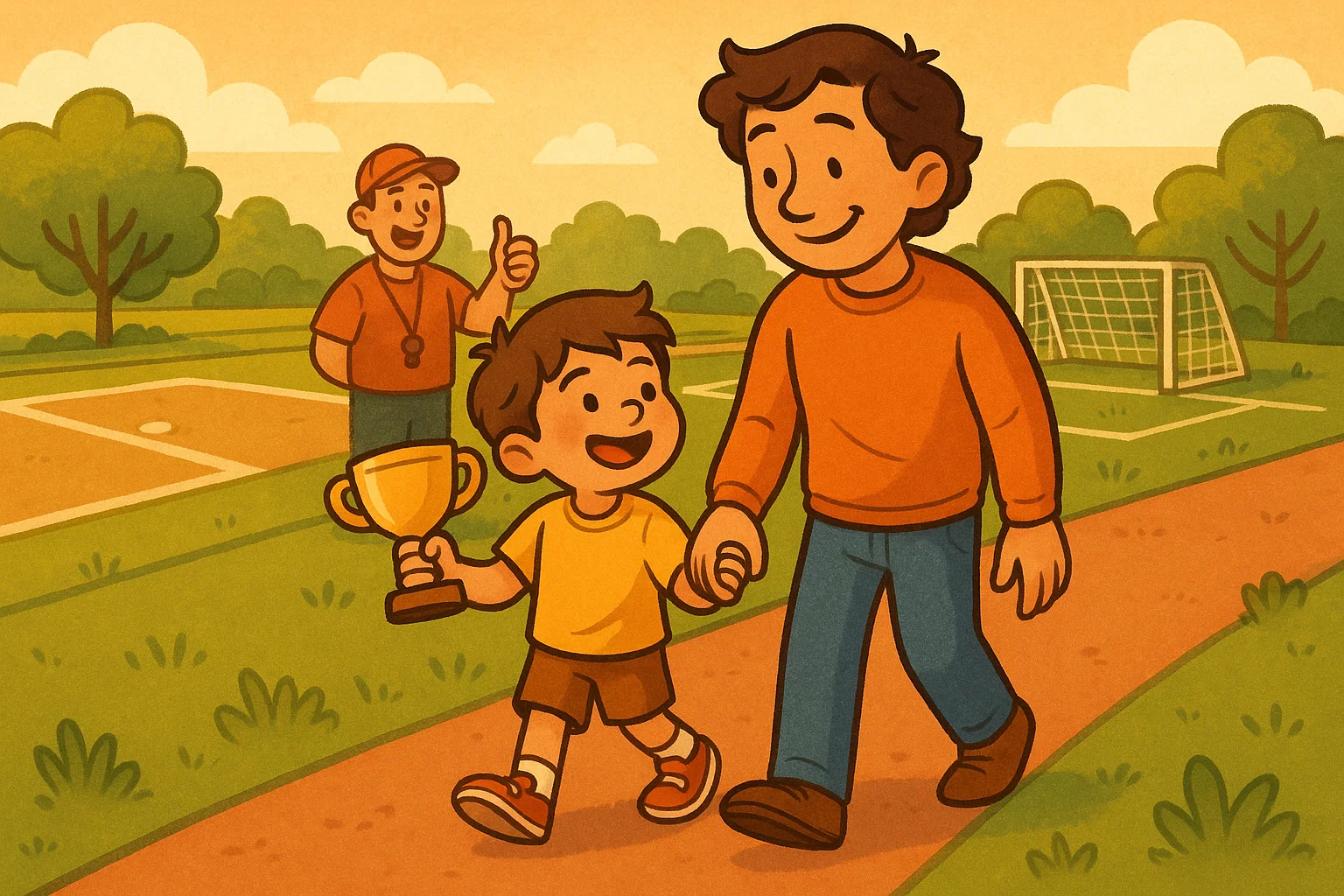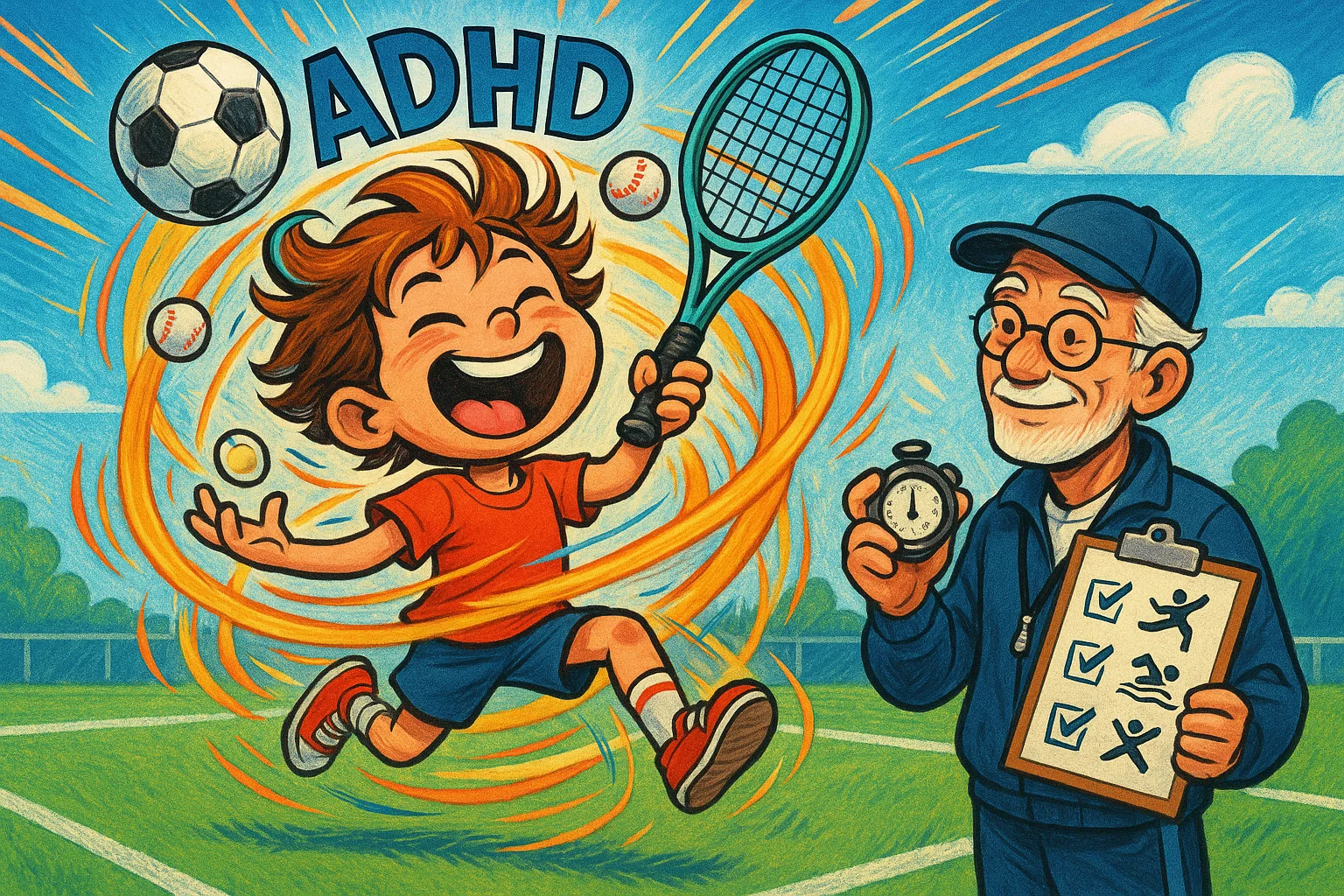Finding the right physical activities can transform your child’s daily experience with ADHD. While every child is unique. From improved focus to enhanced self-control, the right sport can become a powerful tool in managing ADHD symptoms naturally.
Why Sports are Great for Kids with ADHD 🏃♂️
Physical activity serves as natural medicine for kids with adhd, offering benefits that extend far beyond the playing field. When children with adhd engage in regular athletic activities, they experience measurable improvements in attention, behavior, and emotional regulation.
The Science Behind Exercise and ADHD
Exercise triggers the release of neurotransmitters like dopamine and norepinephrine, which are typically lower in children with adhd.
Dr. John Ratey, a Harvard Medical School psychiatrist, notes: “Exercise is the single most powerful tool to optimize brain function.” For kids with adhd, this translates to better focus during homework, improved classroom behavior, and enhanced emotional stability throughout the day.
Physical and Mental Health Benefits
Regular participation in sports provides multiple advantages for children with adhd:
Cognitive Improvements:
- Enhanced executive function and working memory
- Better impulse control and self-regulation
- Increased attention span and focus duration
- Improved academic performance
Physical Wellness:
- Better sleep quality and duration
- Improved motor coordination and balance
- Reduced hyperactivity symptoms
- Enhanced overall fitness levels
Social and Emotional Growth:
- Stronger peer relationships and social skills
- Increased confidence and self-esteem
- Better stress management abilities
- Development of leadership qualities
Choosing the Right Sport ⚽

Selecting appropriate athletic activities requires understanding your child’s specific needs, interests, and ADHD presentation. The best approach involves considering several key factors that can significantly impact your child’s success and enjoyment.
Team Sports vs. Individual Sports
Team Sports Benefits: Team environments teach valuable social skills and cooperation. Sports like soccer, basketball, and volleyball help kids with adhd learn to work together, follow group rules, and develop friendships. However, team sports can sometimes overwhelm children who struggle with attention deficit symptoms due to multiple stimuli and complex social dynamics.
Individual Sports Advantages: Individual sports often provide better structure and clearer expectations for children with adhd. Activities like tennis, swimming, and martial arts allow kids to focus on personal improvement without the pressure of team coordination. Research published on the European Journal of Investigation in Health, Psychology and Education suggests that individual sports may be particularly beneficial for kids with adhd because they offer more predictable routines and direct feedback.
Open-Skill vs. Closed-Skill Sports
Closed-skill sports involve predictable environments where movements are largely predetermined. Activities like gymnastics, swimming, and track require repetitive motions in controlled settings. These sports often work better for children with adhd because they provide clear structure and consistent expectations.
Open-skill sports require quick decision-making and adaptation to changing conditions. Soccer, basketball, and tennis fall into this category. While these can help develop executive function skills, they may initially overwhelm some kids with adhd due to the unpredictable nature of gameplay.
Age-Appropriate Sports
Consider your child’s developmental stage when selecting activities:
| Age Range | Recommended Activities | Key Benefits |
| 4-6 years | Swimming, martial arts, gymnastics | Basic motor skills, routine establishment |
| 7-9 years | Tennis, track, team sports introduction | Skill refinement, social development |
| 10-12 years | All sports, competitive levels | Advanced technique, leadership skills |
| 13+ years | Specialized training, club sports | Personal excellence, college preparation |
Top Sports for Kids with ADHD 🥇

Based on research from the Mental Health Review Journal and expert recommendations, certain athletic activities consistently show superior outcomes for children with adhd. These sports combine structure, skill development, and engaging physical activity in ways that particularly benefit kids managing attention challenges.
Martial Arts
Martial arts programs excel at helping children with adhd develop self-control and focus. The structured nature of karate, taekwondo, or judo provides clear expectations and immediate feedback. Students learn to control their bodies and minds simultaneously, making martial arts exceptionally good for kids with adhd.
Benefits include:
- Enhanced self-discipline and respect for authority
- Improved body awareness and coordination
- Stress reduction through controlled breathing techniques
- Goal-oriented progression through belt systems
Many martial arts instructors have experience working with children who have attention challenges, making these programs particularly welcoming environments.
Swimming
Swimming offers a unique combination of full-body exercise and sensory input that many children with adhd find calming. The repetitive nature of strokes provides structure, while the water environment reduces external distractions. Swimming is often considered one of the individual sports that work exceptionally well for managing ADHD symptoms.
Key advantages:
- Low-impact exercise that’s gentle on joints
- Bilateral coordination that supports brain development
- Sensory regulation through water resistance
- Individual pacing without team pressure
Gymnastics
Gymnastics combines physical strength, flexibility, and mental focus in ways that directly address ADHD challenges. The sport requires intense concentration and body awareness, helping children with adhd develop better self-control. The progressive skill-building nature allows each child to advance at their own pace.
Benefits for children with adhd:
- Improved spatial awareness and body control
- Enhanced ability to follow multi-step instructions
- Development of perseverance and goal-setting skills
- Increased confidence through skill mastery
Horseback Riding
Equestrian activities provide unique therapeutic benefits for kids with adhd. The bond between child and horse creates a calming relationship that often helps reduce hyperactivity and improve focus. Many therapeutic riding programs specifically serve children with attention challenges.
Therapeutic advantages:
- Improved emotional regulation through animal interaction
- Enhanced balance and core strength
- Development of responsibility and empathy
- Sensory integration through rhythmic movement
Tennis
Tennis combines individual skill development with structured gameplay, making it an excellent choice for children with adhd. The sport requires intense focus on the ball while developing hand-eye coordination and strategic thinking. Many tennis programs offer specialized instruction for kids with attention challenges.
Specific benefits:
- Enhanced visual tracking and attention skills
- Improved reaction time and decision-making
- Cardiovascular fitness and endurance building
- Social interaction in a structured environment
Track and Cross-Country
Running sports offer straightforward goals and individual pacing that work better for many children with adhd compared to complex team dynamics. Track events provide clear objectives, while cross-country builds endurance and mental resilience.
Advantages include:
- Clear, measurable goals and personal progress tracking
- Cardiovascular benefits that support brain function
- Team atmosphere with individual accountability
- Flexible training schedules that accommodate family needs
Support Your Child’s Sports Journey 💪

Success in athletics requires more than just signing up for activities. Parents play a crucial role in helping their child with adhd maximize the benefits of sports participation while avoiding potential challenges.
Talk to Your Child
Open communication helps ensure your child enjoys their athletic experience. Discuss what sports interest them most, and remember that their preferences may change as they develop new skills. Ask about their experiences after practice or games, focusing on what they enjoyed rather than performance outcomes.
Consider these conversation starters:
- “What was the better part of practice today?”
- “How did you feel when you learned that new skill?”
- “What would make sports even more fun for you?”
Communicate with the Coach
Building a strong relationship with your child’s coach creates a supportive environment for success. Share relevant information about your child’s ADHD without making it the defining characteristic. Many coaches appreciate understanding how they can better support individual athletes.
Important topics to discuss:
- Your child’s attention patterns and optimal learning times
- Effective motivational strategies that work at home
- Any concerns about medication timing around practices
- Signs that your child may be becoming overwhelmed or frustrated
Monitor Tiredness and Overwhelm
While exercise generally helps kids with adhd, too much activity can lead to exhaustion and increased symptoms. Watch for signs that your child needs rest or schedule adjustments. Some children may need modifications to practice intensity or duration.
Warning signs to watch:
- Increased irritability or emotional outbursts
- Difficulty sleeping despite physical tiredness
- Declining academic performance
- Loss of interest in previously enjoyed activities


